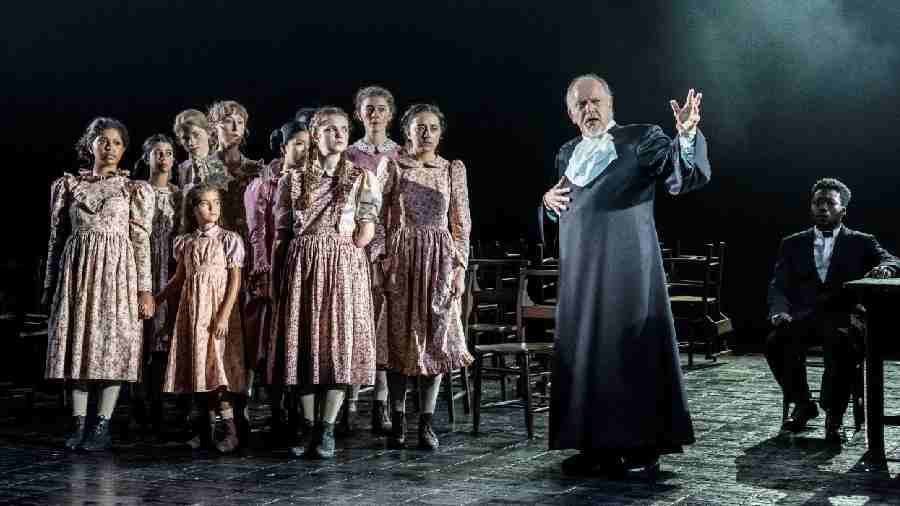A revival of Arthur Miller’s classic 1953 play, The Crucible, which has opened at the National Theatre in London to rave reviews, is literally about a witchhunt which took place in Salem in Massachusetts in 1692-3 during which scores of men and women “and two dogs” were hanged.
But the play is today seen as an allegory for the abuse of power by authoritarian regimes.
Miller wrote the play as a way of condemning McCarthyism, a reference to the controversial practices and policies of US Senator Joseph McCarthy, when the United States government persecuted people accused of being communists through the late 1940s through the 1950s.
Miller was questioned by the House of Representatives’ Committee on Un-American Activities in 1956 and convicted of contempt of Congress for refusing to identify others present at meetings he had attended.
The play continues to be performed widely in India as the issues it raises, such as its treatment of minority communities or those who resist group think, are considered relevant to contemporary society.
The word “crucible” is defined as a severe test or trial; alternately, a container in which metals or other substances are subjected to high temperatures. There are characters in Miller’s play who refuse to sacrifice their principles or to falsely indict others even in the face of death.
The Telegraph found the revival at the National chilling in the extreme. A group of children are encouraged by their religious elders into a sense of hysteria to the point when perfectly innocent men and women are accused of appearing with the devil. This evidence is completely fake, of course, to use modern jargon but on their say so, hundreds are accused of witchcraft and a number sent to the gallows. It is the contemporary relevance of the play that makes The Crucible so frightening.
Matthew Marsh, as the hanging judge, Deputy Governor Danforth, shows how the law can be subverted by those in power to cow an entire population. The Daily Telegraph called him “the insufferably arrogant judge”.
The paper described the revival as “the National at its best” and said that the “gripping revival of Arthur Miller’s masterpiece speaks to us with urgent force”.
It said: “The evening builds an accumulating and harrowing sense of crushing internal logic and group-think; the credulity of the visiting authority figures combines with the bewilderment of those accused and carted off to create an engulfing atmosphere of total helplessness.”
The Daily Mail critic called the play “a waking nightmare” and said: “With slowly gathering sound adding stomach-knotting dread, this is as gut-wrenching a production of Miller's play as I expect to see. It’s long (three hours). But it fathoms the ominous depths of this chilling drama.”
For those unfamiliar with the play, the Time Out critic explained: “If you’ve somehow never come across it, The Crucible is a historical drama about the real-life Salem Witch Trials, wherein a group of young girls accused dozens of their townsfolk of being witches, leading to a reign of terror – presided over by Danforth – in which 20 people were executed and many more arrested. It also functions as an allegory for the paranoid ravages of McCarthyism that Miller’s America was in the grip of….ultimately the executions occur less because of the wild accusations the girls make, more because the men in charge are using the accusations to indulge in hero fantasies and petty score-settling, with no regard for the poorer people they are slaughtering.
“Everyone already knows what the subtext is, it doesn’t need a hot-take reading.”











